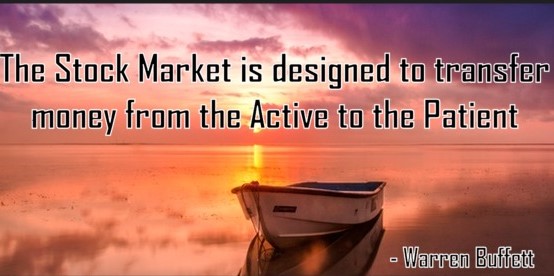Here is the second in our Warren Buffet Series. (Refer Part 1). This one is quite interesting and relevant.
Do participate in sharing the knowledge. So do Comment / Share / Like.
Berkshire Hathaway Shareholder letter – 1978
Learning 1
Buffet warns investors against forecasting folly that prevails in the stock market. He clearly communicates to his shareholders his philosophy of investing for the long term. It helps him to align his shareholders expectation with his thinking.
“We make no attempt to predict how security markets will behave; successfully forecasting short term stock price movements are something we think neither we nor anyone else can do. In the longer run, however, we feel that many of our major equity holdings are going to be worth considerably more money than we paid, and that investment gains will add significantly to the operating returns of the insurance group.”
Learning 2
Buffet highlights some of the characteristics of certain industries that need to be avoided by investors, by using his investment in Textile as an example. Again clearly admitting his mistakes head on.
- Slow capital turnover
- Low profit margins on sales
- Highly competitive landscape
- Capital intensive industry with low differentiation in goods
“The textile industry illustrates in textbook style how producers of relatively undifferentiated goods in capital intensive businesses must earn inadequate returns except under conditions of tight supply or real shortage. As long as excess productive capacity exists, prices tend to reflect direct operating costs rather than capital employed. Such a supply-excess condition appears likely to prevail most of the time in the textile industry, and our expectations are for profits of relatively modest amounts in relation to capital.”
Learning 3
Buffet describes two facets of his highly successful investing style, which he feels is going to reap benefits for him and his shareholders over the years. Buffet and his partner Charlie Munger has been two of the best known proponents of this style of investing. i.e. Concentrated value investing. A concentrated value investor looks for a company where he can see more value than the market price and when he finds such an opportunity, he will invest a significant amount of his portfolio in that company.
My two cents
As investors in equity market or mutual funds, the 3 biggest learning from the letter are:
- Ignore the short term noise and focus on the long term. So markets will be volatile but as long term investors, all you need to know is that you are invested in the right funds and have some patience
- Avoid stocks or Mutual funds with portfolio of companies having bad quality businesses
- Invest only after making sure that there is margin of safety or to put it simply, invest at a price cheaper than its value and when you are convinced about the attractiveness, you need to invest a large percentage of your portfolio. For Mutual funds investors you can look for mutual fund managers playing by this style. Word of caution here, this is just one of the successful investing style and there are various other styles which have been highly successful.


